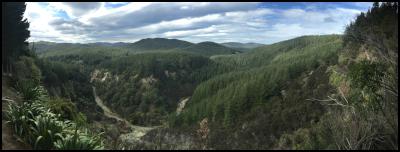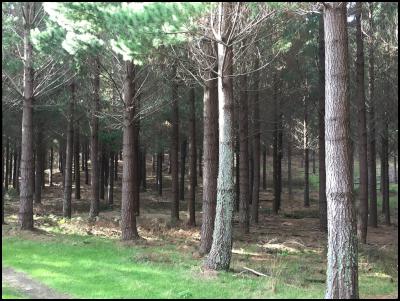Massive forestry landholding placed on the market for sale
Media Release
24.11.2016

One of New Zealand’s
largest forestry land holdings has been placed on market for
with a 60-year tenancy agreement in
place.
Massive forestry landholding placed on the market for sale
One of New Zealand’s biggest privately-owned forestry land portfolios – comprising five separate plantations – has been placed on the market for sale.
The extensive land portfolio is owned by Forest Growth Holdings Ltd, a Southland based company. There is a 60-year forestry right leased to Wairarapa Estate Ltd, an Australian-based forestry investment company.
The portfolio encompasses more than 3,061 hectares of trees spread across the Manawatu and Wairarapa districts in the North Island.
Combined, the forests generate an annual rental income of $216,869 + GST for the landowner. The tenant is a real estate investment firm specialising in sustainable forestry, land management, timber processing, and conservation businesses.
The portfolio of five land holdings are located in the Lower North Island are being marketed for sale through a tender process closing on December 1 by Bayleys Southland salesperson Hayden McCallum and Rob Deal from Bayleys Wairarapa. Only the land, and not the plantings are being sold.
Mr McCallum said the blocks were being sold – either individually or as one parcel – with a 60-year lease in place to a quality tenant.
· Craigie Lea Forest – 1670 hectares generating annual rental of $125,000 + GST per annum
· Erindale Forest – 878 hectares generating annual rental of $53.500 + GST per annum
· Tinui Forest - 190 hectares generating annual rental of $14,938 + GST per annum
· Beehive Creek Forest – 168 hectares generating annual rental of $13,131 + GST per annum
and
· Flat Point Forest – 154 hectares generating annual rental of $10,300 + GST per annum.

All five blocks are freehold titles, with rental reviewed annually and any potential increases linked to the Consumer Price Index. They can be purchased in any configuration ranging from one to five lots.
“From an investment perspective, the 60 year lease term attached to all of the blocks would be one of the longest terms for a commercial occupancy anywhere in New Zealand,” Mr McCullum said.
“Obviously this is dictated by the long growing and harvesting period of the pine plantations, but none the less, offers an extremely long-term investment opportunity.
“The quality of New Zealand’s pine over the likes of its competitors from Australia ensures the wood’s suitability for the construction and housing sectors.”
Mr McCullum said carbon credits produced by the forests would remain with the forestry right holder. As leasee, the company was responsible for watering and tending the pine trees throughout their life cycle, as well as maintaining the access roads networking the plantations.
“The company, which will be the occupier of the land, has a long-term view of economic and market trends for its products, simultaneously supported by operating under environmentally-friendly and sustainable practices,” he said.
“For venture capitalists abiding by ‘ethical investment’ principles when identifying investment opportunities, forestry blocks certainly meet all the criteria. Pine forests are environmentally-positive, they are carbon-positive, they generate foreign income for domestic owners, and the end product they deliver is socially beneficial.”
Mr McCallum says it was very rare
to have such a large portfolio of land with guaranteed
returns in place. This is a great long term investment
opportunity.


 NIWA: Antarctic Footprint Clean-up Challenges - How A Remote Antarctic Base Clean-up Protected One Of Earth’s Clearest Lakes
NIWA: Antarctic Footprint Clean-up Challenges - How A Remote Antarctic Base Clean-up Protected One Of Earth’s Clearest Lakes Hugh Grant: Can A Meme Coin Become A Real Payment Solution?
Hugh Grant: Can A Meme Coin Become A Real Payment Solution? Imported Motor Vehicle Industry Association: EV Battery Fires Expose New Zealand Regulatory Gap
Imported Motor Vehicle Industry Association: EV Battery Fires Expose New Zealand Regulatory Gap  Electricity Authority: Electricity Authority Welcomes Plan To Empower Consumers And ‘Make NZ More Electric’
Electricity Authority: Electricity Authority Welcomes Plan To Empower Consumers And ‘Make NZ More Electric’ Pamu Farms: New Zealand Farm Dog Genetic Study Shows Top Five Health Risks
Pamu Farms: New Zealand Farm Dog Genetic Study Shows Top Five Health Risks EDANZ: Payments NZ Forcing The World’s Most Aggressive Removal Of EFTPOS Terminals
EDANZ: Payments NZ Forcing The World’s Most Aggressive Removal Of EFTPOS Terminals


